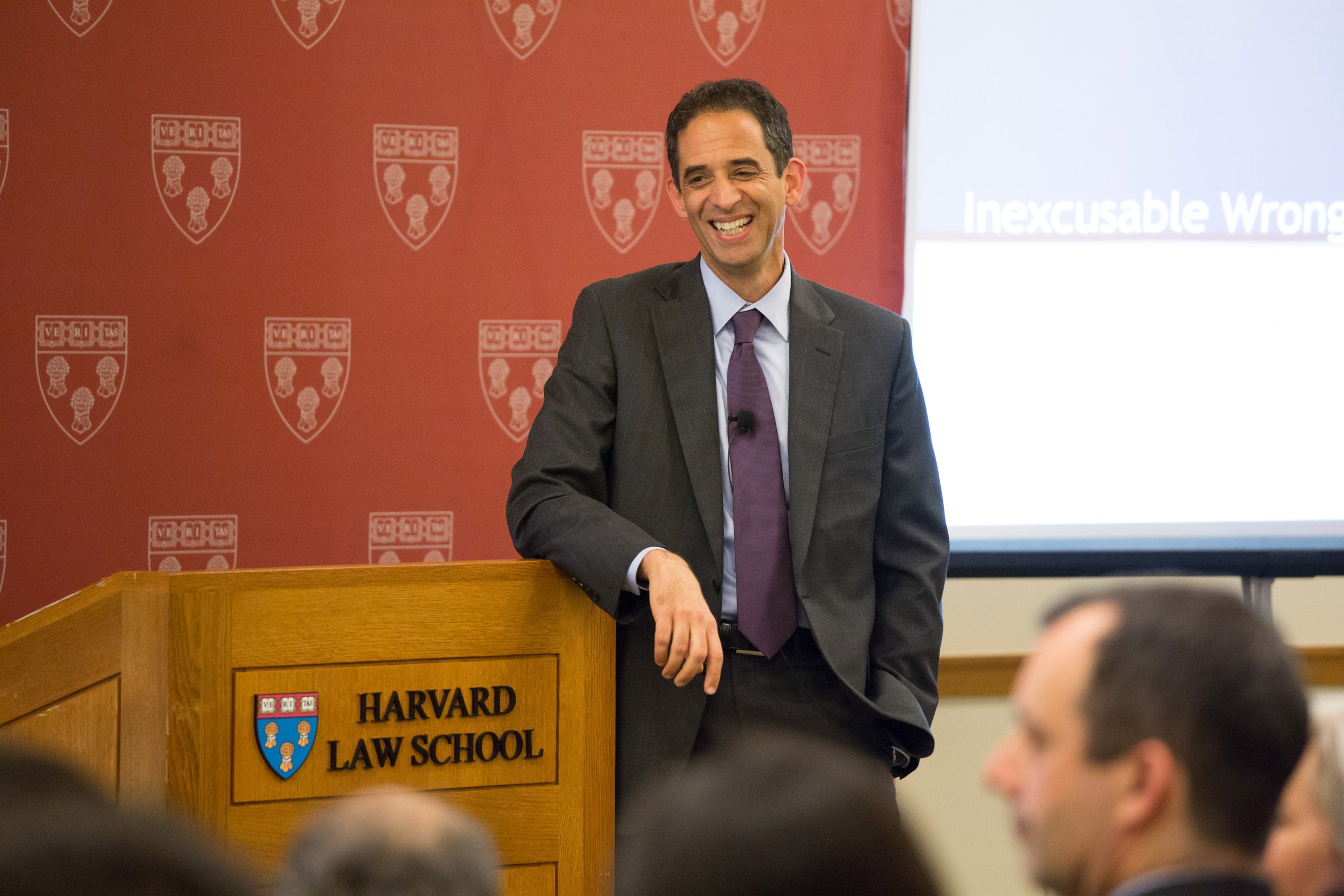Harvard Law School Professor John C.P. Goldberg, an expert in tort law, tort theory, and political philosophy, is devoting much of his time to a book on torts that he is co-authoring with Fordham Law School Professor Benjamin C. Zipursky. He recently discussed some of the work that he’s done at HLS as well as his forthcoming book.
You recently published an article about tort law in the California Law Review titled “Inexcusable Wrongs.” Can you explain what it’s about?
It is a striking feature of tort law that it’s really quite unforgiving or demanding in certain ways. You can have the best possible attitude—“I’m determined to be a careful driver”—and maybe most of the time you are a careful driver. But if you make a mistake and injure someone, you may well be facing liability. If you say, “Come on, nobody can do better than I’ve done over the course of my lifetime of driving,” the judge or the jury will say, “That really doesn’t matter.” I’m interested in the particular notions of responsibility at work in tort law, which are often different from the notions of responsibility one finds in everyday morality and other parts of law.
Why should torts be “inexcusable”? Why shouldn’t courts define them in a way that recognizes valid excuses?
I’m content to say that this aspect of tort law is defensible, even though many scholars think it is not. It is defensible in part because it connects to a basic and very valuable feature of our tort system, which is that it empowers victims, rather than government bureaucrats, to decide what to do in response to mistreatments. Precisely because judges don’t have the authority to let wrongdoers off the hook based on excuses, if you’re a victim of a tort and you want to press your claim, you have that option. That’s part of what private law is all about—empowering victims to decide for themselves whether to credit a wrongdoer’s excuse.
Speaking of private law, you are part of a group of scholars who are working on something called the “New Private Law.” What is that about?
A great deal of modern law is public law—that is, law that regulates how government interacts with citizens, and vice versa. Constitutional law, administrative law, and environmental law are examples of public law. Private law governs interactions between individuals and firms, and operates primarily by empowering them to make arrangements with one another (contracts) or by imposing obligations that they owe to one another (torts) or some combination of the two (property).
WATCH: Goldberg on ‘Inexcusable Wrongs’
In 2013, John Goldberg explored the notion of inexcusability in tort law in a lecture marking his appointment to the Eli Goldston Chair at Harvard Law School. “Typical torts are ‘inexcusable’ in that the law does not let us off the hook even when we have a pretty good explanation for why we did wrong.” Read more
Since the New Deal, it has been common for legal scholars in the U.S. to claim that private law really isn’t a category; that private law categories such as torts and property are “really,” in the end, parts of public law. On this sort of view, tort law, for example, might be understood as an indirect form of government regulation—government harnessing the threat of lawsuits and liability to get people to behave the way the government wants them to behave. The New Private Law movement rejects the effort to collapse private law into public law. To the contrary, it insists that private law has its own distinct concepts, categories and ways of setting and enforcing standards of conduct. Addressing private law on its own terms will permit a clearer understanding of particular topics and entire fields, and will enable us to make better judgments about when private law or when public law promises the best solutions to pressing practical problems.
What other new things are you working on?
My regular co-author Ben Zipursky and I met as law students in the late 1980s. We became fast friends and are now both law professors. We’ve published dozens of articles and we’re now writing a book that aims to offer a complete picture of what tort law is all about, why it looks the way it does, and what’s good and bad about it. We think the book is timely and important because there’s a great deal of misunderstanding today. In the media, for example, tort law is all about billion dollar damage awards and frivolous lawsuits. There’s a reason for that. The media wants interesting stories—man bites dog, not dog bites man. So you’re never going to read a headline that says, ‘Jury today awards reasonable damages to medical malpractice plaintiff.’ That’s not news. Even though the book’s primary audience is academic, we hope that it will explain tort law in a way that is commonsensical and will demonstrate why tort has been an accepted part of Anglo-American law for centuries.
Do you have a title for the book?
We don’t. I tell my friends that the current working title is “The True Theory of Torts,” but that’s probably a little over the top, even for an HLS professor.
